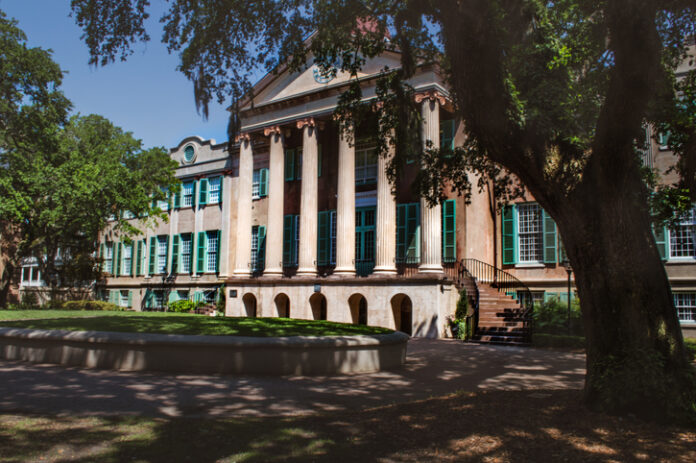The U.S. Department of Education (DOE) has denied a request by Grand Canyon University (GCU) to recognize its nonprofit status.
DOE recognition of GCU as a nonprofit would allow the school to receive federal student aid with few strings attached. Commercial schools must meet stricter regulations imposed on for-profits during the Obama administration.
GCU has operated as an IRS-recognized charity since 2018. The DOE cited the school’s close relationship with a for-profit company as the reason for the denial.
Ownership Change
Before becoming a nonprofit, GCU was a for-profit commercial entity with a campus in Phoenix, Arizona and a growing number of online students. In 2018, the for-profit company, Grand Canyon University, Inc., sold GCU’s assets to a nonprofit, Gazelle University, for $853.1 million. Gazelle changed its name to GCU, and the for-profit company changed its name to Grand Canyon Education, Inc.
The Higher Learning Commission, GCU’s regional accreditor, approved the change in ownership in 2018. The State of Arizona recognized GCU’s status as a charitable organization, and the National College Athletic Association agreed to recognize GCU, which was already a Division I school, as a nonprofit.
The DOE also approved the change in ownership. However, DOE denied GCU’s request to change its status under the federal student aid program—Title IV of the Higher Education Act—from for-profit to nonprofit.
Request Denied
Under the asset-purchase agreement by which Gazelle University acquired GCU, 60 percent of GCU’s revenues will be paid to the for-profit Grand Canyon Education company.
This arrangement “violates the most basic tenet of nonprofit status—that the nonprofit be primarily operated for a tax-exempt purpose,” stated Michael J. Frola, director of the Multi-Regional and Foreign Schools Participation Division at the DOE, in a letter to GCU on November 6.
The goal of the changeover was to “drive shareholder value,” Frola wrote. Thus, the university “does not meet the operational test’s requirement that both the primary activities of the organization and its stream of revenue benefit the nonprofit itself,” stated Frola.
Another factor behind the department’s rejection, stated Frola, was that Brian Mueller is president of both the nonprofit university and the CEO of the for-profit company.
Dramatic Growth
GCU has a complicated history. In 2003, it was a small, struggling Christian college with about 1,000 students. Today, it has 20,000 students on campus and 105,000 students taking courses online. The school says the turning point in its history was its purchase by a group of private investors, which enabled it to refocus the school to reach working adults.
When the Obama administration and Democrat U.S. senators began to criticize for-profits and regulate them more strictly than in the past, GCU came under fire, prompting the organization’s decision to switch to a nonprofit financial plan.
Tougher Rules
There are fewer requirements for nonprofit institutions to receive student aid funds—such as Pell grants for low-income students—directly from the federal government under Title IV of the Higher Education Act. Proprietary institutions have been more strictly regulated in recent years.
For-profits must meet what is known as the 90/10 rule—which requires a school to receive no more than 90 percent of its revenues from the federal government. Most of that revenue comes from student loans. Only 73 percent of GCU’s revenues come from the federal government, the university says.
“By the Department’s own metrics, GCU has been a resounding success story,” GCU said in a statement published on November 19, 2019. GCU also cited its low student loan default rate of 5.6 percent, and said no programs had failed the DOE’s former “gainful employment rule,” which applied primarily to for-profit schools.
The rule, which was adopted during the Obama administration, required all for-profit universities to verify graduates are earning enough to repay their loans or justify the investment of federal grants. The regulation was repealed by DOE Secretary Betsy DeVos, effective July 1, 2020, and meanwhile, the Trump administration is not strictly enforcing it.
‘Semi-Divine’ Status
Among the reasons why Grand Canyon University would want to become a nonprofit entity is many politicians’ hostility toward for-profits, says Thomas Lindsay, director of the Texas Public Policy Foundation’s Center for Higher Education.
“Eight years of attacks on for-profit education by the Obama administration and the attitudes of the Democratic presidential candidates make them want a safe space,” Lindsay said.
Charitable organizations, by contrast, are viewed very positively, Lindsay says.
“Nonprofits have a gilded status and are semi-divine,” Lindsey said. “Who wouldn’t want to join them?”
The dual role of Brian Mueller as both president of the non-profit university and CEO of Grand Canyon Education is a problem, Lindsay says.
“It might be considered to be prima facie evidence” of a conflict of interest, Lindsay said.
Obama ‘Career Staff Remain’
For-profit schools’ desire to become nonprofits is understandable, says Adam Kissel, a former DOE deputy assistant secretary.
“Because the Obama Administration mercilessly attacked for-profits and many of the same career staff remain at the Department of Education with key roles in assessment and decision making, self-preservation dictates that for-profits convert to nonprofit if they can,” Kissel said.
“My impression is that some career staff will strongly oppose conversions on principle,” Kissel said.
A CGU spokesperson stated the university has requested further discussions with DOE officials regarding its status.








